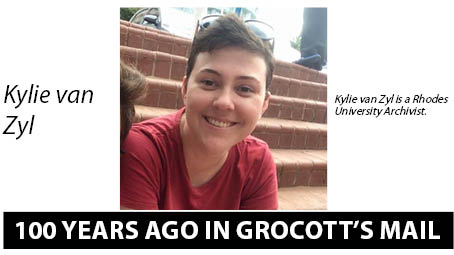Terror and rage in the Russian Empire
“The awful barbarities,” wrote the editor of Grocott’s on 17 November 1905, “perpetrated on the Jews in European Russia have evoked profound sympathy throughout the British Empire…The sin and disgrace of the robbery, incendiarism and massacre, of which the Jewish community have been the victims, must be shared by the Tsar, his ministers, his troops, his police, and his Slavonic people generally.”
Late 1905 had been a time of horror for Jewish citizens of the Russian Empire. For hundreds of years, they had been allowed to live only in an area called the Pale of Settlement, a region including modern Belarus, Lithuania and Moldova, much of what is now Ukraine, eastern Latvia and parts of western Russia. Most of the Russian Empire’s inhabitants were Russian Orthodox Christians; Jews did not make up more than 20% of the population anywhere.
They were, furthermore, restricted to urban areas. After Tsar Alexander II “freed” the serfs in 1861, thousands of former peasants flooded into towns and cities, and there they came into conflict with the Jewish population, who tended to be slightly wealthier and better educated. Europe, especially Germany and the Russian Empire, in the later 19th century was already quite anti-Semitic; the increased pressure and conflict in Russian towns aggravated these feelings.
The Russian Revolution of 1905 kick-started simmering resentment into violence – and the Russian government and police did nothing to stop it. Indeed, these pogroms are believed to have been premeditated. Local authorities gave the anti-Semitic mobs free reign to loot and destroy Jewish homes and business, and kill Jews. Between 18 and 25 October 1905, pogroms occurred in six major western Russian towns, as well as countless smaller ones. At least 800 Jews were killed in Chernigov, 400 in Odessa, 150 in Rostov-on-Don, 100 in Kiev, 67 in Yekaterinoslav, and 54 in Minsk. The historian Shlomo Lambroza gives a death toll of 3103 in the 1905-1906 Ukrainian pogroms.
Great Britain and the British Empire, as well as parts of Europe, reacted with outrage. In late October, the London fund for the relief of Jews in Russia sent £60 000, the Paris fund sent £29 000, and many colonies sent money as well. At the time, the UK was not on good terms with Russia, and the pogroms did not improve relations.
But all this outrage didn’t improve matters much; although the October Revolution of 1917 changed Russian attitudes to the Jewish population there, mainland Europe was beginning the long slide into World War Two. Adolf Hitler formed the ideas that would ultimately result in the Holocaust as early as 1919, and became Chancellor of Germany in 1933, then Head of State in 1934, elected on a platform of anti-Semitism, racism, rampant nationalism, white supremacism and twisted populism. By the time he was brought down, over 6m people – Jews, Gypsies, homosexuals and political dissidents – had been killed in the concentration camps.
Queries, suggestions, tips and corrections to nervousflamingo@gmail.com.


